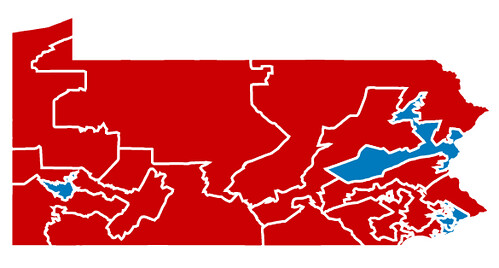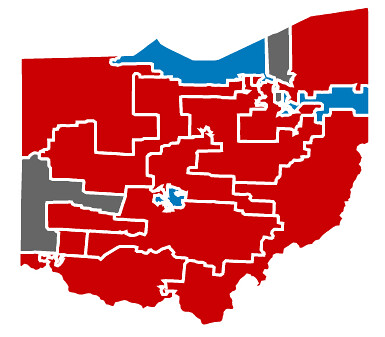Tea Party groups supported Republican nominee Mitt Romney and many Congressional candidates. They lost the presidency. They made no new gains in Congress; some Tea Partiers lost their seats, and some–like Minnesota’s Michele Bachmann, barely held on. It wasn’t a good election for the Tea Party or for the Republican Party.
many Congressional candidates. They lost the presidency. They made no new gains in Congress; some Tea Partiers lost their seats, and some–like Minnesota’s Michele Bachmann, barely held on. It wasn’t a good election for the Tea Party or for the Republican Party.
But this doesn’t mean that the Tea Party hasn’t–or won’t–exercise influence.
Movements, when they’re successful, change the boundaries of the political debate. The Tea Party couldn’t do much to undo the federal rescue of the financial industry, the auto bailout, or the fiscal stimulus of 2009-2010. The election means that their prospects of repealing President Obama’s health care reform have evaporated.
But the Tea Party also pushed for rejecting government action to address climate change, limiting taxation, and a forceful response to the budget deficit. Partly in response to the movement, President Obama made somewhat less than half-hearted efforts to address climate change. Borrowing Tea Party rhetoric, he cut spending and oversaw a temporary cut in the payroll tax, talking about the deficit and the federal debt almost incessantly.
Now that the election is over, it remains to be seen whether Barack Obama will recover the political courage his most vigorous–and disappointed–supporters imagine. Superstorm Sandy has given him an opportunity to return to climate change, and the upcoming “fiscal cliff” will force him to negotiate about tax cuts and the deficit.
The bargains he negotiates with Congress will be a clear reflection of the extent of Tea Party influence. In the past, he has been willing to trade the increased taxes on wealthy people he campaigned on (in 2008 as well as 2012) to keep the government operating.  His negotiating position should be stronger now, and we can watch to see whether the strong efforts have so shifted the boundaries of political debate that he’ll cut government spending without standing strong on the need for taxes.
His negotiating position should be stronger now, and we can watch to see whether the strong efforts have so shifted the boundaries of political debate that he’ll cut government spending without standing strong on the need for taxes.
Social movements can exercise influence even in losing campaigns.
And, mostly, the 2012 elections have undone little done by the 2010 elections. In fact, Democrats face an uphill struggle in winning Congressional seats because those swept into office in 2010, particularly at the state level, did their best to establish a longer-lasting partisan advantage. Coming in concert with the 2010 census, they were able to do quite a lot.
In most states, the legislature is responsible for drawing electoral districts for both the state legislature and the Congress. Partisan legislatures gerrymander when they can, seeking to maximize the payoff from the votes they can mobilize. With great computer programs, lots of data, and a rather polarized electorate, it’s fairly straightforward to project partisan votes from most populations. Gerrymanderers pack as many of the other side’s voters into a district as possible. If you can ensure that a district will vote 80-90 percent Democratic, for example, you have fewer Democratic voters to worry about in
other districts. (Democrats do this too, when they have the chance; after the last census, however, the Republicans, having won several state legislatures, had much better opportunities.
So, more voters chose Democratic rather than Republican candidates for the House, but the Republican Party will nonetheless enjoy a majority of roughly 30 members in the next Congress. In Pennsylvania, above, which President Obama carried by more than 5 points, Democrats carried 5 of 18 House districts. In Ohio, below, which Obama carried by about
2 points, Democrats took 4 of 16 House districts.
The electoral maps in many states present a difficult set of obstacles for the Democratic Party, and the Tea Party can claim some credit. These are among the longer term consequences of political movements.
Filed under: Uncategorized Tagged: climate change, deficit, elections, influence, michele bachmann, Sandy, taxes, tea party





















